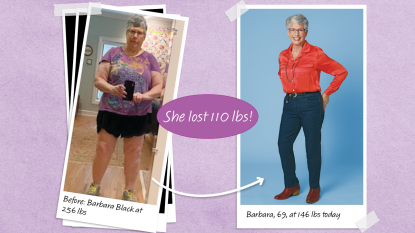Cutting This Many Calories Per Day Can Help You Drop 20 Pounds and Improve Your Heart Health

When it comes to keeping your cardiovascular system functioning properly, there’s a lot of focus on eating a healthy diet and exercising regularly. But how much do calories really factor into heart health? And is exercise alone enough? One recent study decided to find out.
In new research published in the American Heart Association’s journal Circulation, scientists wanted to see what a few small lifestyle changes could do to help drastically improve heart health in older, obese adults. In a 20-week trial with 160 obese participants between the ages of 65 to 79, subjects were split up into three groups: One group kept their regular diets but added aerobic exercise four times per week to their routines, a second group added exercise and reduced their daily caloric intake by 250 calories, and a third group added exercise and reduced their daily caloric intake by 600 calories.
The results of the study were surprising but exciting: Participants who exercised four times per week and only underwent a moderate calorie reduction (i.e. forgoing 250 calories per day) lost 10 percent of their body weight on average, or about 20 pounds. Moreover, they saw around the same weight loss as the group with the more restrictive calorie counts, despite consuming 350 more calories per day. In terms of heart health, participants in this moderate calorie reduction group saw less arterial stiffness and better distensibility, which means that blood was flowing more easily. Once again, the group that had great calorie restriction didn’t see more improvement.
Overall, researchers believe that this means that older, obese adults who want to want to lose weight and improve their heart health don’t have to take such drastic measures to see positive changes. “These results suggest that combining exercise with modest calorie restriction — as opposed to more intensive calorie restriction or no-calorie restriction — likely maximizes the benefits on vascular health, while also optimizing weight loss and improvements in body composition and body fat distribution,” explained Tina E. Brinkley, PhD, the lead author of the study and an associate professor of gerontology and geriatric medicine at Wake Forest School of Medicine. “The finding that higher-intensity calorie restriction may not be necessary or advised has important implications for weight loss recommendations to improve cardiovascular disease risk in older adults with obesity.”
You’ll want to talk to your doctor before you make any changes to your diet or exercise regimen, but it’s a relief to know that those tweaks don’t have to completely alter your entire lifestyle!













